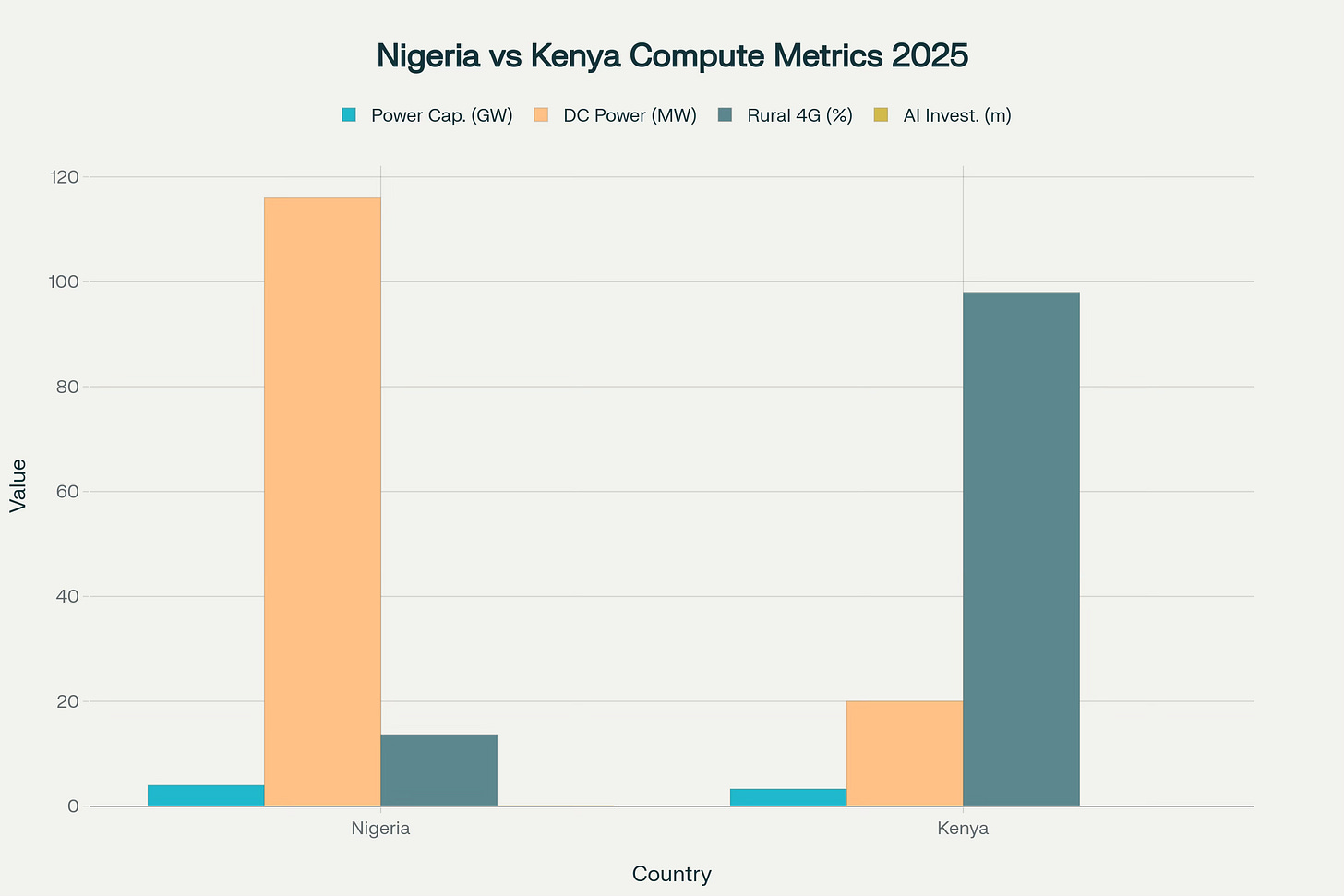Compute governance for AI safety in Nigeria and Kenya
Policy brief on closing infrastructure and policy gaps
Summary: Nigeria and Kenya are advancing AI strategies but their digital infrastructure and policies lag behind the needs of safe, inclusive AI development. This brief outlines compute-related gaps in both countries and offers regionally aligned recommendations.
why compute governance matters
Compute - the hardware and energy systems behind AI is foundational to AI safety. Decisions about who can access powerful chips, where data is stored and how energy is sourced are increasingly central to national AI strategies. For governments, compute governance is no longer just a technical detail; it’s a core part of AI oversight.
country snapshots: nigeria and kenya
Nigeria
Policy: National Digital Economy Policy (2020–2030), draft National AI Strategy (2023)
Compute investment: $130,000 via Federal Ministry of Communications, Innovation and Digital Economy
Key challenges:
Severe energy constraints: 12 GW installed, but only ~4 GW available on average
No enforceable energy standards for data centers
Data localization law lacks implementation and coordination with energy policy
Kenya
Compute initiative: Konza Technopolis dedicates percentage of infrastructure to AI
Key challenges:
Insufficient sustainable baseload for high-intensity workloads
Cross-border data policies outpace enforcement capacity
Reliance on multinationals for cloud undermines local sovereignty

regional and global tensions
The African Union’s draft AI strategy encourages shared infrastructure and regional integration. But member states differ:
Nigeria emphasizes strict data localization
Kenya advocates for cloud reciprocity across East Africa
These mismatches create jurisdictional gray areas for training AI models and managing datasets.
Globally, countries are adopting compute governance standards that emphasize energy efficiency, transparency and access equity. Both Kenya and Nigeria trail in aligning with these benchmarks.
infrastructure gaps
Power reliability: Nigeria’s compute labs report 48 hours/year of downtime due to outages; Kenya reports 110 hours
Connectivity: 4G rural coverage is 84% in Nigeria vs. 98% in Kenya
GPU availability: Nigeria has 0.4 high-end GPUs per 100,000 people; Kenya has 1.2

These gaps impact everything from AI training to data privacy. Without upgrades, inclusive AI development remains out of reach.
recommendations
For national policymakers
Nigeria: Develop binding energy standards for AI facilities; harmonize data localization and infrastructure policies
Kenya: Include compute resource obligations in cloud agreements; invest in national GPU clusters
For regional bodies
Align AU compute strategy with REC (e.g ECOWAS, EAC) frameworks
Standardize cross-border data governance templates
For funders and multilaterals
Prioritize infrastructure co-investments with local institutions
Support open-access AI labs tied to national strategies
conclusion
Compute governance is not a future issue, it’s a present-day determinant of AI safety. Nigeria and Kenya are well-positioned to lead in Africa but only if their strategies match the scale and urgency of the infrastructure and policy gaps.

